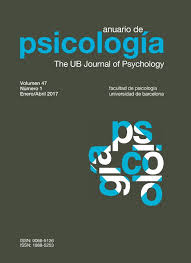Validation of a Spanish version of the Remoralization Scale
Keywords:
Remoralization, Validation, Assessment, Psychometric propertiesAbstract
The Remoralization Scale (RS) was developed in order to measure an individual's state in terms of how the person perceives him or herself in relation to his/her self-concept, self-value, hope, empowerment and positive anticipation. However, there is no data on the psychometric properties of the instrument in a non-clinical population. The aim of this study was to validate a Spanish version of the Remoralization Scale (RS) in a non-clinical sample with a prevention objective and/or the promotion of mental health. The original version of the RS was translated into Spanish and it was applied to a non-clinical sample of 1443 university students in Argentina (18–25 years old). Exploratory and confirmatory factor analyses were performed to study the factorial structure and the validity of the construct. Results suggest that a two factor-model (self-satisfaction and self-concept) results in the best fit for this non-clinical population. The reliability of the total scale and for both sub-scales was moderate to high. Discriminant analysis and contrasting groups analysis showed significant results: the clinical sample and the depression-symptoms sample showed less “remoralization” than the non-clinical sample and a group without depression symptoms, respectively. Results are discussed taking into account previous conceptualizations and studies. In conclusion, the RS was validated for its use in a non-clinical Argentinean population. Regarding its construct validity, a two-factor model with high reliability was obtained.Downloads
Issue
Section
Articles
License
The authors who publish in this journal agree to the following terms:
Authors transfer to the publisher all copyright for the full term of protection and for all the world.
The authors can post a copy of their articles in accordance with the policy of free access to the journal.


